People and Partnerships
People and Partnerships
Meet the team
Jackie Peel
Director
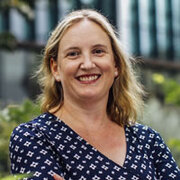
Jackie is a Professor at Melbourne Law School and a leading, internationally-recognised expert in the field of environmental and climate change law. She has published widely on these topics including leading monographs on Climate Litigation and Principles of International Environmental Law.
Jackie serves as the Treasurer of the Australian & New Zealand Society of International Law, a Co-Chair of the American Society of International Law’s Signature Initiative on Climate Change and is a Lead Author in Working Group III of the Intergovernmental Panel on Climate Change (IPCC) 6th Assessment Report. She is an editor of Transnational Environmental Law and co-founder of the Women’s Energy and Climate Law Network.
Jackie was a Fulbright and Hauser Scholar at NYU and has held visiting scholar positions at the University of California, Berkeley, and the Woods Institute for the Environment at Stanford University.
Ben Neville
Deputy Director - Strategic Partnerships and Community Impact
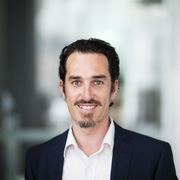
Ben is an Associate Professor in the Department of Management & Marketing, Faculty of Business and Economics at the University of Melbourne. Ben researches and teaches in sustainable business and society, including corporate social responsibility, business ethics, ethical consumption and social entrepreneurship. He is a Section Editor of the Corporate Responsibility (Theory and Qualitative) section of the leading international academic Journal of Business Ethics.
At the University, he serves as the Gourlay Fellow of Ethics in Business, and the Sustainability in the Curriculum Fellow for the Faculty of Business and Economics. Ben is also the Coordinator of the Governance, Policy and Markets Stream in the Master of Environment, Chair of the University's Fair Trade Steering Committee, and sits on the Executive Committee of the Melbourne Sustainable Society Institute.
Kathryn Bowen
Deputy Director – Knowledge Translation
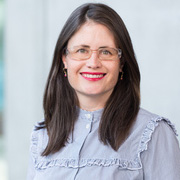
Kathryn is Professor in the Melbourne School of Global and Population Health, and an Affiliate Scholar at the Institute for Advanced Sustainability Studies, Potsdam, Germany. Kathryn works at the nexus of global environmental change, global health and governance issues primarily in low and middle-income settings. She holds a PhD (ANU), MSc (International Health) (Humboldt & Frei Universities, Berlin) and BA/Psyc (Hons) (Newcastle).
Kathryn holds several key international roles, including Lead Author on the IPCC 6th Assessment Report, a member of the Science Committee of the World Adaptation Science Program; a member of the Steering Committee of the Future Earth Health Knowledge Action Network (Health KAN), and a member of the Taskforce on Planetary Justice Research as part of the Earth System Governance network.
Kathryn regularly advises the World Health Organization on climate change and health, as well as other national and international organisations, including the Department of Foreign Affairs and Trade, the German Organisation for International Development, UNDP, Global Environment Facility, the Asian Development Bank and the City of Melbourne.
Kathryn is an editor of the journal Globalization and Health, and is a reviewer for many journals, including Social Science and Medicine, Global Health Action, and Environmental Research Letters among others.
Rebekkah (Bek) Markey-Towler
Research Fellow
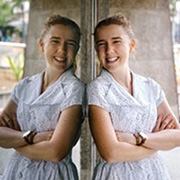
Rebekkah (Bek) is a Research Fellow for Melbourne Climate Futures. She has a particular interest in environmental and climate change law, and has worked with Professor Jacqueline Peel at Melbourne Law School on a number of projects including: devising a legal blueprint for corporate energy transition, strategic climate change litigation, and legal frameworks for waste management in the Pacific and in times of pandemic. Previously, Rebekkah spent a year teaching English in Japan and spent 18 months as an associate to a judge at the Federal Court of Australia. She holds a Bachelor of Arts/Laws (Hons) from the University of Queensland.
Annabelle (Belle) Workman
Research Fellow
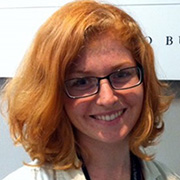
Annabelle (Belle) Workman is a Research Fellow at Melbourne Climate Futures. She is a qualitative researcher with research interests that include climate change, human health, policy development, air quality and just energy transitions. She completed a PhD investigating the role of health co-benefits in the development of climate change mitigation policies in 2019 at the University of Melbourne’s Climate and Energy College. Since her PhD, she has completed a Research Fellowship at the University of Tasmania’s Menzies Institute for Medical Research with the environmental health group evaluating the smartphone health app, AirRater . Most recently, she has been a project officer with the University of Tasmania sustainability team and knowledge broker at the Centre for Air pollution, energy and health Research.
Beth Barber
Communications Advisor
Joanne Burns
Administrator and Project Support Officer
Joanne is the Administrator and Project Support Officer for Melbourne Climate Futures. She has previously worked at the University of Melbourne, Parks Victoria, and Queen’s University, Belfast, in events, tourism and project support officer roles with a particular focus on sustainable projects. These include the launch of a Sustainable Events Guide at Parks Victoria, working on an ‘Eco Sleeper Pods’ launch at the 2018 Grand Prix in Albert Park, and delivering an ‘Eco’ carbon-friendly campaign at student accommodation in Northern Ireland, which encouraged students to live in a more environmentally-friendly way. She holds a PhD in English and Music from Queen’s University, Belfast.
Climate Futures Research Cluster
The Climate Futures Research Cluster, previously the Climate Transformations Research Cluster, cultivates a network of cross-disciplinary climate change researchers across the University. It is also a point of connection for climate change practitioners, researchers, and the broader public. The Cluster was previously led by the Melbourne Sustainable Society Institute prior to transitioning across to the new Melbourne Climate Futures initiative.
Our objectives
- Strengthen relations within and between Faculties and Research Institutes on sustainability research.
- Create a network of cross-disciplinary climate change & sustainability researchers for collaborative research grant development.
- Connect researchers at the University to external research funding partners (academic, industry and government).
- Provide a portal and focal point for climate change and sustainability practitioners, the public, and academics both at and beyond the University.
- Support research training and early career researchers at the University.
If you want to join the cluster or find out more, contact us at melbourne-climate-futures@unimelb.edu.au
Health, Environment, Research & Action (HERA) Collaborative
HERA operates under the umbrella of Melbourne Climate Futures. Given the great urgency with which we need to act on climate and environmental health issues, we are a group of researchers committed to accelerating health-focused action by co-designing, generating, synthesizing, and applying evidence on health and wellbeing in relation to environmental change and disasters. The group acts as a platform for research and policy recommendations, and as a portal for external stakeholders to engage with evidence. In particular:
- Our work includes research and action on the health effects of climate change, such as wellbeing, eco-anxiety and eco-grief, that result from climate-related events and their consequences, including disasters, migration, political and socio-economic inequities, as well as the health impacts of broader environmental and climate justice issues. Our work also focuses on the therapeutic benefits to mental health and wellbeing from nature connection, including for health promotion and recovery.
- We work with a variety of stakeholders to support policy and planning processes that reduce the physical and mental health impacts of climate change.
- We seek to identify opportunities for positive action, the potential role of disasters in amplifying pre-existing social inequities but also as catalysts for change, and the ways that active participation in response to climate challenges may connect to health and wellbeing.
- We work in a collaborative way with communities (including children and young people), climate scientists (interdisciplinary), industry, and government actors.
HERA is co-led by Prof Kathryn Bowen and Prof Lisa Gibbs.
Web Resources:
- A Webinar organised by United for Global Mental Health.
- The Global Observatory of Healthy and Sustainable Cities
- Urban Resilience and Innovation programme at Melbourne Centre for Cities
Publications
-
2023
- Murphy, N., Azzopardi, P., & Bohren, M. A. (2023). Safeguarding youth sexual and reproductive health and rights in the context of increasing climate-related disasters in the Pacific: A scoping review of policies and responses. International Journal of Disaster Risk Reduction, 103561.
-
2022
- Borda, A., Molnar, A., Neesham, C., & Kostkova, P. (2022). AI could help us spot viruses like monkeypox before they cross over – and help conserve nature. The Conversation, May 27, 2022.
- Borda, A., Molnar, A., Neesham, C., & Kostkova, P. (2022). Ethical Issues in AI-Enabled Disease Surveillance: Perspectives from Global Health. Applied Sciences, 12(8), 3890.
- Kariotis, T., Borda, A., Winkel, K. and Gray, K., 2022. Citizen Science for One Digital Health: A Rapid Qualitative Review of Studies in Air Quality with Reflections on a Conceptual Model. Citizen Science: Theory and Practice, 7(1), p.39.
- Burch H, Beaton LJ, Simpson G, Watson B, Maxwell J, Winkel KD. A planetary health-organ system map to integrate climate change and health content into medical curricula. Med J Aust. 2022 Nov 7;217(9):469-473. doi: 10.5694/mja2.51737
- Villanueva-Cabezas JP, Winkel KD, Campbell PT, Wiethoelter A, Pfeiffer C. One Health education should be early, inclusive, and holistic. Lancet Planet Health. 2022 Mar;6(3):e188-e189 doi: 10.1016/S2542-5196(22)00018-3
- Remedios, L, & Winkel, KD. (2022). Editorial, Vol 23.1: Education for sustainable healthcare: Setting the educational agenda for our future. Focus on Health Professional Education: A Multi-Professional Journal, 23(1), i-v. 10.11157/fohpe.v23i1.641
- R. Mohideen; A. Aberg; I. Mareels, "DIITA-Gender Equality and Social Inclusion (GESI) Workstream White Paper - Gender and Technology: The Case of the Energy Sector," in DIITA-Gender Equality and Social Inclusion (GESI) Workstream White Paper - Gender and Technology: The Case of the Energy Sector , vol., no., pp.1-40, 4 Nov. 2022.
- Mohideen, Reihana, Demazy, Antonin, and others, 2022. Inclusive Community Energy Resilience in Bangladesh. ADB Working paper series No. 89. 2022. 10.22617/WPS210522-2.
- Abdolkhani, R., Choo, D., Gilbert, C., Borda, A (2022). Advancing Women’s Participation in Climate Action through Digital Health Literacy: Gaps and Opportunities, JAMIA (In review).
-
2021
- Williams, J.L., Langley, S., Borda. A. (2021). Virtual nature, inner forest: Prospects for immersive virtual nature art and well-being. Virtual Creativity 11(1): 125-146.
- Mohideen, Reihana, 2021. "Technology for social well-being: Strengthening urban resilience in developing countries integrating infrastructure, energy, health and social inclusion". 2021 IEEE Conference on Norbert Wiener in the 21st Century: Being Human in a Global Village, 21CW 2021, (2021). doi:10.1109/21CW48944.2021.9532527
-
2020
- Mohideen, Reihana, Batra, Pankaj, and Khan, Prabhjot. "Low-Carbon Energy Transition in India: Implications for Gender Equality and Social Inclusion". IEEE Technology and Society Magazine 39, no. 1 (2020). doi: 10.1109/MTS.2020.2967516
-
2019
- Borda, A., Gray, K., Downie, L. (2019) Citizen Science Models in Health Research: an Australian Commentary. Online Journal of Public Health Informatics. 11(3):e22, 2019.
-
2017
- Patrick, R., Armstrong, F., Borda, A., Hanna, L. and Taylor, T. (2017). National Consultation regarding a National Strategy on Climate, Health and Well-being for Australia. Final Consultation Report. Climate and Health Alliance, May 2017.
-
2016
- Patrick, R., Armstrong, F., Ryan, I., Borda, A. and Taylor, T. (2016). Survey of Health Professionals’ Opinions around a National Strategy on Climate, Health and Wellbeing for Australia. Preliminary Report. Climate and Health Alliance, September 2016.
-
2013
- Pettit, C.J., Williams, S., Bishop, I.D., Aurambout, J-P., ... Borda, A., Abramson, D. (2013). Building an ecoinformatics platform to support climate change adaptation in Victoria. Future Generation Computer Systems 29(2): 624-40.
Sustainability at Melbourne
MCF forms part of the University of Melbourne’s commitment to growing inter-disciplinary knowledge and action across the social, ecological and economic dimensions of sustainability. Please see the ‘Sustainability at Melbourne’ website for more information.
University Initiatives
Some of the University initiatives that make up Melbourne Climate Futures ...
- Centre for Anthropogenic Pollution Impact and Management
- Centre for Disaster Management and Public Safety
- Centre for Health Equity, School of Population and Global Health
- Centre for Resources, Energy and Environmental Law
- Centre for Sustainability and Business
- Climate Energy College
- Connected Cities Lab
- Environment, Wellbeing and Sustainable Communities
- Environmental Science Hub
- Green Infrastructure Research Group
- Mallee Regional Innovation Centre
- Melbourne Energy Institute
- Melbourne School of Design Thrive Research Hub
- Melbourne Sustainable Society Institute
- Peter Cook Centre for Carbon Capture and Storage Research
- Primary Industries Climate Challenges Centre
- Social Action Laboratory, School of Physchological Sciences
- Sustainable and Healthy Environments Lab
- The Waterway Ecosystem Research Group
- Water, Environment and Agriculture Program
University Partnerships
Following are the University partnerships ...
- Australian Research Council Centre of Excellence for Climate Extremes (CLEX)
- Australian Centre for Advanced Photovoltaics
- Building 4.0 CRC
- Australian Research Council in Exciton Science
- Energy Transition Hub
- Future Fuels Cooperative Research Centre
- Low Carbon Living Cooperative Research Centre
- National Centre for Coasts and Climate
- National Environment Science Program (NESP) Clean Air and Landscapes Hub
- National Environment Science Program (NESP) Earth Systems and Climate Change Hub